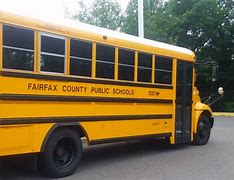Disturbed by the actions of Fairfax County Public Schools (FCPS), I have just finished reading Threat Assessment and Management in Virginia Public Schools: Model Policies, Procedures, and Guidelines (Model Policies), a publication of the Virginia Department of Criminal Justice Services (DCJS).
It enjoins schools to investigate everyone, including “persons unaffiliated with the school.” Everyone.
DCJS thus turns public schools into law enforcement agencies by an absurd and dangerous interpretation of the applicable Virginia law.
The colossal DCJS overreach inserted language in Model Policies that would permit FCPS to investigate the Wuhan lab. FCPS is using that authority to back its RFP for a web dragnet.
That cannot end well.
They will miss real threats, identify non-existent threats, suppress speech, leak protected information or all four while investigating entire communities with a dogmatic view of what constitutes a threat.
I note that Model Policies is written in reference to Code of Virginia § 9.1-184. Virginia Center for School and Campus Safety created. That law carefully avoids the term “parents.” They are not mentioned once.
11. In consultation with the Department of Education, provide schools with a model policy for the establishment of threat assessment teams, including procedures for the assessment of and intervention with students whose behavior poses a threat to the safety of school staff or students; (emphasis added)
Model Policies assigns the School Threat Assessment Teams authorities and duties based on Section A of Code of Virginia § 22.1-79.4. Threat assessment teams and oversight committees that is not supported by the rest of the law.
Model Policies explicitly interprets the term “individuals” in Section A as meaning:
- “Students”;
- “Employees”;
- “Parents, guardians or other family members”;
- “Persons who are (or have been) in relationships with staff or students”;
- “Contractors, vendors or other visitors”;
- “Persons unaffiliated with the school”.
In my view that interpretation reflects preposterous and dangerous overreach. It is the basis for every other flaw in that document discussed here.
Beyond students and employees, schools have no business investigating anyone. Doing so asks people who have no experience to conduct investigations of entire communities. That is the job of law enforcement.
In a flaw in that statute, § 22.1-79.4. does not direct the threat assessment team to contact law enforcement.
I point you to another Virginia Department of Criminal Justice Services (DCJS) document Virginia School-Law Enforcement Partnership Guide (Partnership Guide). That takes an entirely different view. The correct one in my view.
Partnership Guide is far more respectful of the differences in authorities and responsibilities between school officials and law enforcement officials than is Model Policies. I recommend rewriting Model Policies on the legal model of Partnership Guide.
Yet another DCJS document, Information Sharing Guide for K-12 Public Schools refers to Family Educational Rights and Privacy Act (FERPA). That is because the authors of that document assumed that schools will handle only educational records. I hope they will turn out to be right.
Awaiting a Model Policies rewrite, I urge the Attorney General to consider directing schools to collect information available in school on employees and students only and report concerns to a law enforcement agency for further investigation.
Larger local law enforcement agencies are trained and equipped to gather additional information, collate and act on it, including advising the schools on threat assessments. Some of the smaller ones are not.
If the State Police need to set up a center that will work with schools and local law enforcement to investigate and assess threats, the Secretary of Public Safety and Homeland Security can send implementing legislation to the governor.
But please get the schools out of the community-wide law enforcement business.
What could go wrong? Go to page 50 of Model Policies. Under Assessment review Key Areas for Inquiry. See
Have there been any concerning, aberrant, threatening or violent communications?
Look at the adjectives in that question. Do we really want 132 school divisions trying to put together teams to collect that data and make those subjective assessments?
Most of them don’t have the trained and experienced resources and legal advice to do it and never will. They also have no realistic capability to protect such information from leaking, even though they are directed to do so.
I note with concern that FCPS has published a request for proposal to pay up to $200,000 for “social media management services” to “monitor social media threats, harassment, hate speech and bullying.” The RFP raises constitutional and legal issues.
Civil Rights, Liberties and FCPS. An article recently posted on the Brennan Center website titled Social Media Surveillance by the U.S. Government defines a growing and unregulated trend of online surveillance that raises concerns for civil rights and liberties.
As stated in the article,
People are highly likely to censor themselves when they think they are being watched by the government, and this undermines everything from political speech to creativity to other forms of self-expression.
It is clear, based upon other actions and public statements by the Fairfax County School Board and its Superintendent, that suppression of political speech is one of the objectives of the FCPS action.
Of particular interest to me is the applicability of the Constitution of Virginia to the FCPS action:
- Article I, Section 10. General warrants of search or seizure prohibited; and
- Article I, Section 12. Freedom of speech and of the press; right peaceably to assemble, and to petition.
I today have contacted DCJS and urged that department to subject Model Policies to an end-to-end review. And I urged the Attorney General’s office to issue an opinion, by request if necessary, to address the FCPS madness.
Updated Feb 12, 2022 at 17:35.


Leave a Reply
You must be logged in to post a comment.